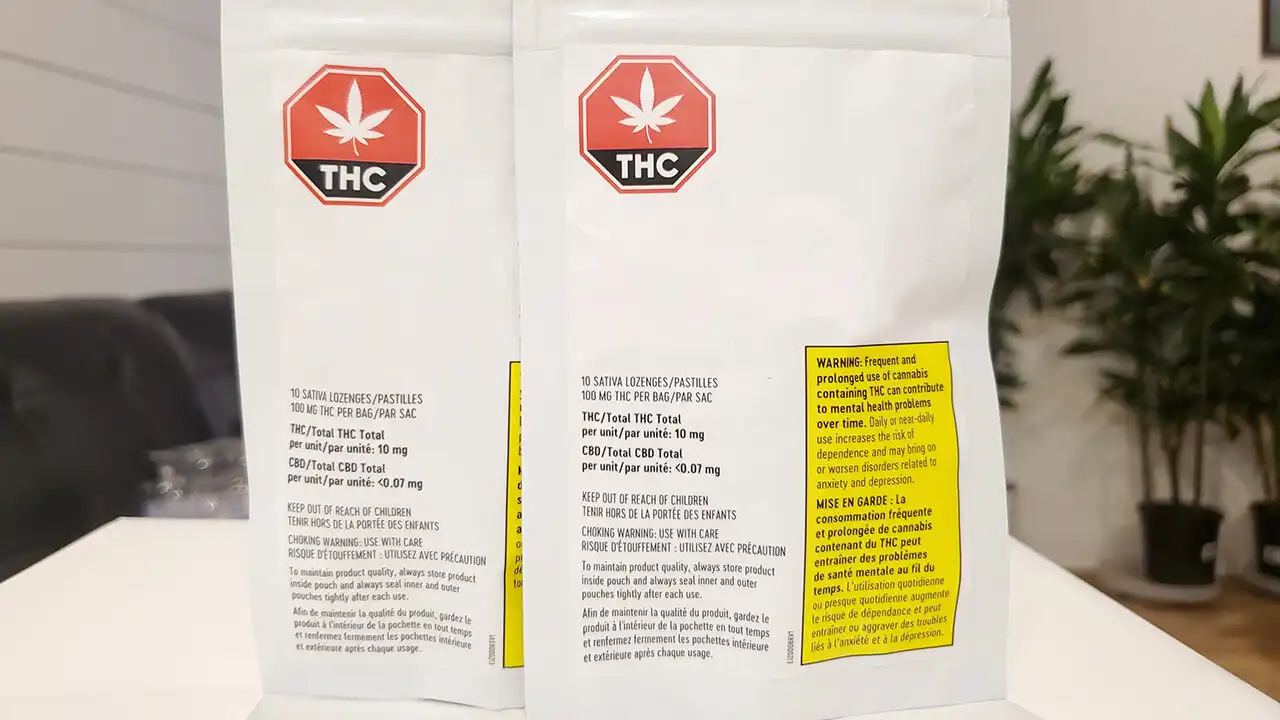Health Canada has asked five companies to stop distribution and sale of noncompliant cannabis edibles products by the end of May and provincial wholesalers have been notified of the ongoing crackdown after months of confusion, MJBizDaily has learned.
Canada’s cannabis industry and the federal government have been on a collision course over the products since January, when Health Canada started asking some licensed companies to stop selling certain ingestible marijuana products.
The industry says the products are appropriately classified as cannabis “extracts” because the ingredients used are not food and, thus, are compliant with federal marijuana regulations.
However, Health Canada, the nation’s federal cannabis regulator, has said the affected products are improperly classified as “extracts” and should actually be categorized as “edibles.”
The distinction is important because any cannabis product classified as an extract has 100 times more allowable THC per package than a product classified as an edible.
For instance, certain packages of Ottawa, Ontario-based Indiva Limited’s Wild Cherry Lozenges and Life Lemon Lozenges contain 100 milligrams, 250 milligrams and 500 milligrams of THC per package.
However, if those were classified as edibles, they would be limited to no more than 10 milligrams of THC per package.
Indiva was one of the five companies hit with a notice of noncompliance letter by the federal regulator.
Toronto-headquartered Organigram Holdings also said it received a notification from Health Canada claiming some of its products were incorrectly classified as “extract” rather than “edible.”
Both Indiva and Organigram paused production of the affected product formats.
Health Canada released a long-awaited compliance statement in early March intended to help identify products improperly classified as extracts.
Deadline looms
Health Canada said federal license holders with noncompliant products are expected to “stop further distribution and sale” of those products in question by May 31.
To date, five noncompliance letters have been issued regarding affected product formats, but that number might grow “while we (Health Canada) gather information from them on their products,” a spokesperson told MJBizDaily via email.
Asked what consequences license holders could face if they fail to comply, the spokesperson said Health Canada’s preference is for regulated parties to voluntarily undertake actions to regain compliance.
“However, Health Canada may take enforcement measures to address non-compliance or mitigate risks to public health or public safety as outlined in the Compliance and enforcement policy for the Cannabis Act,” the email noted.
Those measures could range from calls and letters – which are intended to educate and prevent noncompliance – to inspections to measures intended to correct noncompliance or address a public health or safety risk.
Those could include the suspension or cancellation of a federal license or the issuance of administrative monetary penalties up to 1 million Canadian dollars ($730,000).
Health Canada also told MJBizDaily it recently informed provincial wholesalers of the situation.
The Ontario Cannabis Store, the largest marijuana wholesaler in Canada, subsequently sent letters to suppliers on March 15.
In one such letter viewed by MJBizDaily, the wholesaler reminds the recipients they must ensure products they sell to the OCS are compliant with applicable laws and regulations.
“If you currently sell or have proposed to sell products to the OCS that may be affected by the Compliance Statement, you must provide the names and brands of the affected product(s) by the end of day, March 24, 2023,” the letter reads.
The letter, sent by OCS Chief Operating Officer Denny Palarchio, says the agency “will continue to replenish and accept deliveries” for the affected products until May 31, 2023.
Industry reacts
Industry sources say the crackdown will cost the struggling industry tens of millions of dollars.
They also say Health Canada’s crackdown is a gift for the underground market, since legal cannabis edibles containing no more than 10 milligrams of THC per package can’t compete with illegal products that don’t face such restrictions.
Another source of frustration is the fact that the products Health Canada is trying to pull from the market already underwent the government’s so-called Notice of New Cannabis Product (NNCP) process, which requires licensed producers to notify the regulator months in advance of new products.
While that process doesn’t mean those products were necessarily “approved” by Health Canada, the agency would have signed off on and been aware of the respective products, including the amount of THC contained in each package.
Shane Morris, founder of Ottawa-based Morris & Associates Consulting, said serious questions need to be asked about why Health Canada reviewed several NNCPs for these products and then allowed them to exist in the market for years.
“For example, the Organigram Jolts were launched in August 2021 and subsequently had multimillion-dollar sales. How does this happen?” Morris asked.
“Regulatory certainty is a key element of good regulatory policy. Having the regulator change their minds overnight after months or years of allowing reviewed products in market speaks to either incompetence and/or gross inconsistency on the part of Health Canada.” (Full Story)

